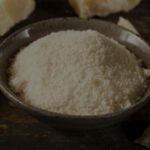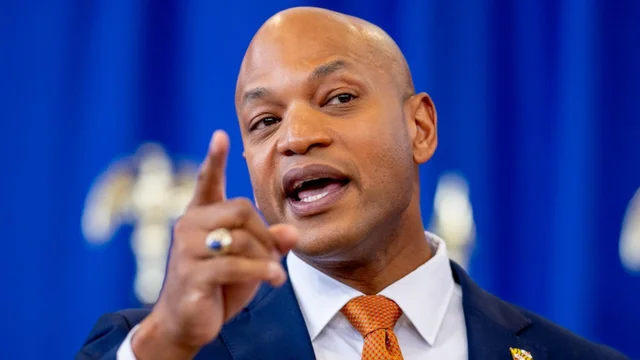Linford Christie Olympic to Business: During his profession, the 64- to 12-month-vintage received limitless medals and broke records at the time. He is certainly one of only 5 British athletes to win gold at the Olympic Games, the World Championships, the European Championships and the Commonwealth Games—the four most prestigious occasions.
His profession, though, became overshadowed through a 1999 ban for doping, ending his time as a British athlete.
On the eve of the 2024 Paris Olympics, Christie is ready to look back on his profession along with several of his family participants, with a BBC documentary airing approximately the lifestyles of the former music runner on Thursday.
‘I am now not the sort of character who clearly looks back and displays; in order that became tough for me to do, however, it has made me admire how some distance I have come and the way fortunate I am to have a few extraordinary humans around me,’ he said within the documentary, in keeping with the I Paper.
In later years, Christie would dip his toes into education, broadcasting, and working for a successful commercial enterprise. But how did he go from being Britain’s quickest guy to being a smart entrepreneur?

THE EARLY YEARS
Linford Christie Olympic to Business, who was born in Saint Andrew, Jamaica, moved to London at the age of 7.
He could stay together with his father, James, and mom, Mabel, near Loftus Road, the house of QPR Football Club. He might frequently watch video games via his lower back window or by climbing on the rooftops of neighbouring houses, according to The Guardian.
His first massive taste of competition got here at the 1977 London Youth Games; however, he did no longer soak up athletics till he turned 18 years old.
Christie turned into a slow to choose up the tempo of existence inside the fast lane, failing to make Team GB’s Olympic relay squad for the 1984 Games in Los Angeles.
But stimulated by his omission, he might return, hungrier than ever, and under the mentorship of his instructor, Ron Roddan, he would start to show off his excellent sprinting abilities.
CHRISTIE’S SPRINTING LEGACY
Roddan had in fact written Christie a letter following his Olympics snub, mentioning, according to The Telegraph, that he might not preserve his teaching until the sprinter, who was in his early 20s, did not take the sport severely.
‘Once he made his thoughts up, he became going to do it properly, then he changed into something very focused,’ Roddan advised The Telegraph. ‘He wanted to be the nice in Britain, then the satisfactory in Europe, and then the quality inside the world. And he did it.’
In 1986, Christie might eventually move directly to win the guys’s 100-meter race at the European Championships rather than finishing 2nd at the Commonwealth Games that year.
It was possibly the moment he announced himself on the athletic scene.
Christie went directly to win bronze at the 1987 World Championships rather than clinching silver in Seoul at the 1988 Olympic Games.
His crowning moment came here in 1992, with the sprinter turning into only the third British athlete to win the 100m at the Olympics, going for walks nine.Ninety-six seconds in the very last at the age of 32. He earned the title of becoming the oldest Olympic 100-champion in history.
That identical year, he might also clinch gold at the World Cup in Cuba before setting first inside the 100 m at the World Championships in Stuttgart the subsequent 12 months.
During that length, Christie became the highest-quality athlete in the sport; however, he could hold on to rake in medals, also claiming gold at the 100-meter European Championships in Helsinki.
Christie might, in the end, end his career having earned a total of 24 fundamental championship medals.
Notably, Christie became the primary European sprinter to break the ten-second barrier, posting a time of ninety-seven seconds while prevailing silver at the Seoul Olympics.
He held the European record for sixteen years, being overtaken by Francis Obikwelu at Athens in 2004.
‘I just ran. I simply ran with what I had. That became the primary aspect; just run with what you obtain. The race isn’t for the fast nor the sturdy, but for the staying power until the stop,’ he instructed The Guardian, speaking on his report time.
It became known in Seoul, although Christie tested high-quality pseudoephedrine.
‘Everything I had worked tough for had simply gone down the drain,’ he wrote in a column with The Independent in 1995.
Upon gaining knowledge of the news, Christie additionally wrote that he ‘just broke down’, but he could ultimately not incur a ban.
A disciplinary hearing with the International Olympic Committee was held all through the Games; however, they voted by a margin of 11 to 10, with the committee giving him the ‘benefit of the doubt’. The committee absolved the sprinter after mentioning that the lines of pseudoephedrine could have come from ingesting ginseng.
‘It harm, you realize, because I knew I didn’t do some thing; I didn’t deliberately take some thing,’ he instructed the BBC documentary.
BUSINESS VENTURES
It was only after his triumph in Barcelona that Christie installed his sports management enterprise, Nuff Respect, alongside fellow Team GB athlete Colin Jackson.
The business enterprise, which is based totally in Twickenham, continues to operate these days and represents elite athletes, broadcasters, and coaches across a huge range of disciplines.
Their roster of customers includes a wealth of big names, including Mark Lewis-Francis, Iwan Thomas, and Sharron Davies.
CHRISTIE’S BAN AND RETIREMENT
In 1996, Christie would go back to defend his 100-meter identity in Atlanta but became agonisingly disqualified within the final after two fake starts.
The sixty-four-year-old vintage father-of-eight might hang up his jogging spikes for the following 12 months, but he could maintain his ability to compete on exhibition occasions.
It was at an indoor assembly in Dortmund in 1999 that Christie, then aged 38, tested superb for nandrolone, an anabolic steroid that some athletes have used in the past to build muscle.
He had popped out of retirement to compete in the race assembly.
Initially, the British Athletic Federation brought a not-responsible verdict to Christie; however, that was finally overturned by the International Association of Athletics Federations (now World Athletics).
The IAAF said in a declaration on his listening to: ‘The arbitration panel believes that UK Athletics… Reached an erroneous end whilst clearing those athletes.’
He was ultimately surpassed by a one-year ban by way of the governing frame.
He had appeared on the BBC’s coverage of the 2000 Olympics in Sydney; however, he changed and was dropped from their punditry crew, with the BBC declaring his omission was ‘beside the point’.
Christie has constantly denied any wrongdoing and, in the course of his career, has been staunchly antagonistic toward using steroids in athletics.
‘If I took capsules, there needed to be a motive to take pills. I had quite a lot retired from the game,” he stated, following his ban.
WHAT DOES LINFORD CHRISTIE DO NOW?
Having also held the British file for almost 30 years, Christie might eventually turn his hand to training.
In 2006, he was unveiled as a senior mentor to athletes with his former students, Darren Campbell and Katharine Merry, who would pass directly to clinch medals at essential championships. He would also step into broadcasting, running on BBC shows, which include Record Breakers and Garden Invaders, and acting on factual information, inclusive of The Jump and I’m a Celebrity… Get me out of here!
Alongside running his business, Nuff Respect, the former sprinter additionally runs an athlete schooling academy referred to as the Linford Christie Academy, which allows athletes competing in tune and discipline occasions to improve their velocity and health. He has additionally worked with Brunel University as an athletics coach.
Visit For More: Global Insights Latest











